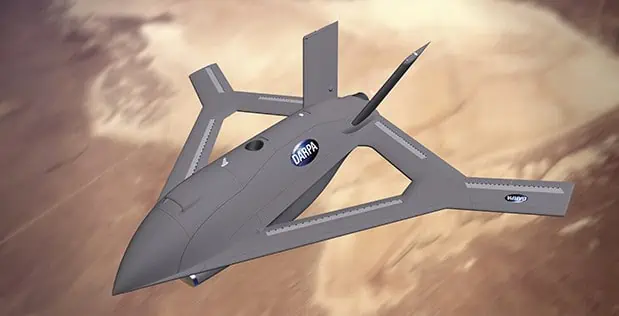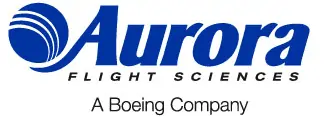
DARPA has selected Aurora Flight Sciences to move into the detailed design phase of the Control of Revolutionary Aircraft with Novel Effectors (CRANE) program.
This follows successful completion of the project’s Phase 1 preliminary design, which resulted in an innovative testbed aircraft that used Active Flow Control (AFC) to generate control forces in a wind tunnel test.
Phase 2 will focus on detailed design and development of flight software and controls, culminating in a critical design review of an X-plane demonstrator that can fly without traditional moving flight controls on the exterior of the wings and tail.
The contract includes a Phase 3 option in which DARPA intends to fly a 7,000-pound unmanned X-plane that addresses the two primary technical hurdles of incorporation of AFC into a full-scale aircraft and reliance on it for controlled flight. Unique features of the demonstrator aircraft will include modular wing configurations that enable future integration of advanced technologies for flight testing either by DARPA or potential transition partners.
“Over the past several decades, the active flow control community has made significant advancements that enable the integration of active flow control technologies into advanced aircraft. We are confident about completing the design and flight test of a demonstration aircraft with AFC as the primary design consideration,” said the CRANE Program Manager Richard Wlezien. “With a modular wing section and modular AFC effectors, the CRANE X-plane has the potential to live on as a national test asset long after the CRANE program has concluded.”
The AFC suite of technologies enables multiple opportunities for aircraft performance improvements, such as elimination of moving control surfaces, drag reduction and high angle of attack flight, thicker wings for structural efficiency and increased fuel capacity, and simplified high-lift systems.
“Thanks to a variety of innovative participants, the CRANE program has significantly advanced the state of the art of multiple active flow control technologies,” said Wlezien. “We are uniquely positioned to build on those achievements by evaluating a wide range of relevant technologies during our planned X-plane flight tests.”










